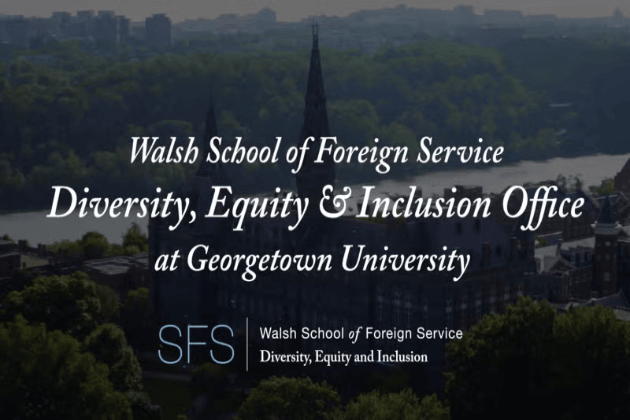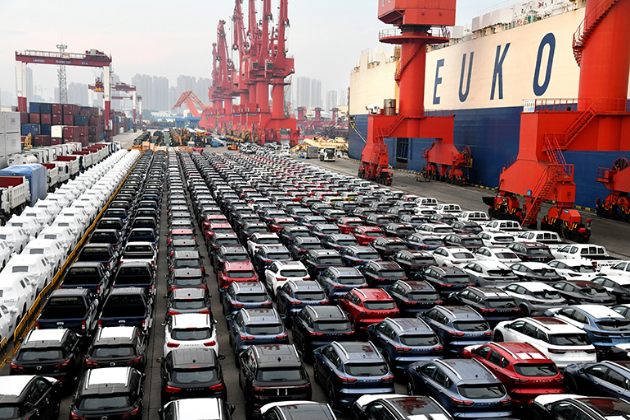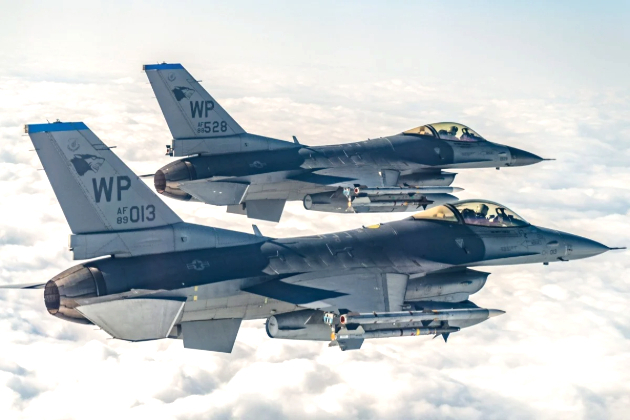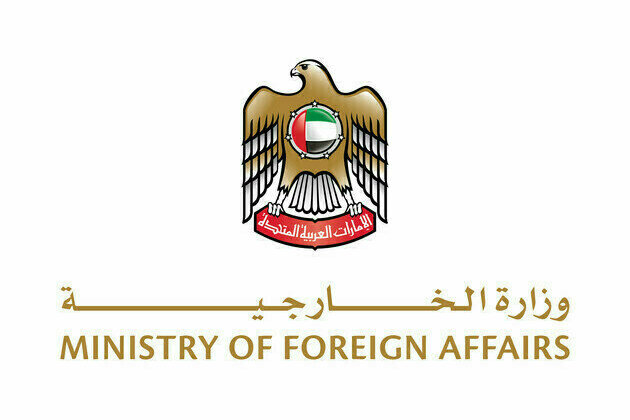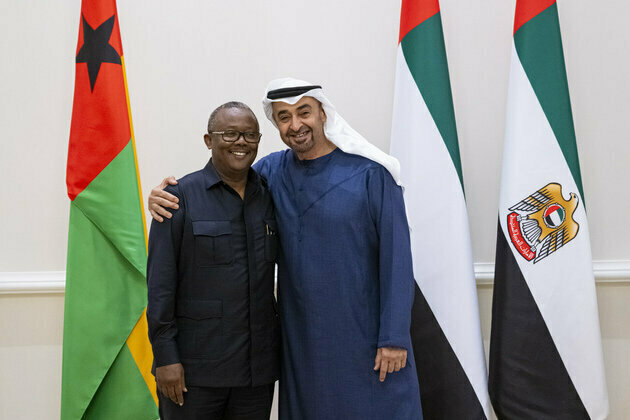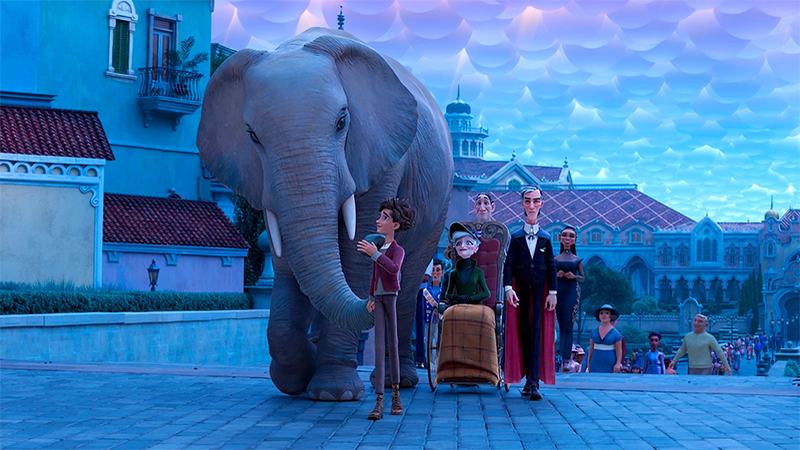Fyodor Lukyanov: The West no longer leads heres what happens now
RT.com
09 Apr 2025, 02:05 GMT+10
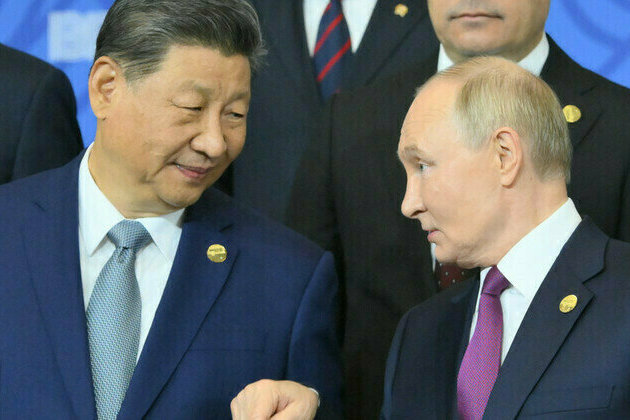
Russia, China, and the US form a strategic triangle of power
The United States still holds a commanding position in global affairs. Its influence - political, military, economic, and cultural - remains immense, the result of a historical head start built over decades. It would take a catastrophic event on the scale of the Soviet collapse to knock Washington out of the top tier of global power. That scenario seems unlikely.
However, what is changing - gradually, but noticeably - is the way the US perceives its own role. American leaders have begun to publicly acknowledge the emergence of a multipolar world. Even figures like Senator Marco Rubio now speak of it openly. Washington still considers itself the most powerful player, but no longer the only one. The era of universal hegemony has given way to a new understanding: that power is now distributed, not monopolized.
The term "multipolarity" entered the international lexicon in the mid-1990s, largely in response to Western triumphalism. After the Cold War, America and its allies promoted the idea that the liberal world order was the only viable system. Multipolarity, championed most vocally by Russia and China, emerged as a counterpoint - more slogan than strategy at the time, but an important statement of intent.
In the 1990s, the political West was far ahead in nearly every domain: economic strength, military reach, ideological influence, cultural exports. The only area where it lagged was demographics. Western nations represented only a small portion of the global population, but their overwhelming advantages elsewhere rendered this imbalance seemingly irrelevant.
That assumption has proven flawed. Today, we see that demography - long underestimated - is central to many of the challenges facing the developed world. Migration has become a defining issue. The mass movement of people from the Global South to the Global North is reshaping societies and economies. It creates internal tensions in host countries, triggering political crises, while also serving as a vital source of labor for aging, shrinking populations.
This dual dynamic has geopolitical consequences. On one hand, migrant-sending countries gain unexpected leverage over more powerful states, even as they remain dependent on remittances and host-nation goodwill. On the other, restrictive policies by host nations can spark turmoil in migrants' home countries - creating the risk of instability that rebounds back to the West. Migration is no longer a domestic or humanitarian issue alone; it is now a key element in the global balance of power.
As the world transitions toward multipolarity, another important trend emerges: not all potential powers are eager to engage in global contests. The ongoing crises in Ukraine and Palestine have revealed the limited number of actors willing to take real geopolitical risks. Once again, it is the United States and Russia - superpowers of the 20th century - that are shaping outcomes in these key regions: Eastern Europe and the Middle East.
Though their relative strength has shifted, what matters is not only capacity, but also the willingness to play the "big game" - to assume responsibility, to accept risk, and to act decisively. This is where the so-called Global South, including large powers like India, has hesitated. Many of these states prefer to observe, calculate, and engage selectively according to their own interests. Their demographic weight gives them long-term influence, but for now, they remain cautious players.
Meanwhile, a new strategic triangle has taken form: Washington, Moscow, and Beijing. Two of the three - Russia and the US - are deeply involved in shaping current global dynamics. The third, China, exerts enormous influence through its industrial and economic power, but still prefers to avoid direct political entanglements. Yet Beijing understands that it cannot remain entirely on the sidelines forever. Its role in shaping the future is too critical to ignore.
In contrast, Western Europe finds itself in an increasingly awkward position. The European Union wants to participate in global decision-making, but it lacks the tools to do so. Its military capabilities are limited, its political unity is fragile, and even its economic edge is fading. As a result, the EU risks becoming an object rather than a subject of global transformation-a realization that contributes to its erratic and short-sighted foreign policy moves.
The triangle of Washington, Moscow, and Beijing is not static. It will shift. India, due to its size and ambition, and Western Europe, due to its proximity to multiple crises, will remain important. Other regional players - Turkey, Saudi Arabia, Iran, Israel, and US allies in East Asia - also have roles to play. But the core of today's global configuration rests on three vertices, each with a unique approach to power.
This is what multipolarity truly looks like in April 2025: not a neat balance of equals, but a dynamic, evolving structure shaped by ambition, restraint, legacy, and demographics. By the end of the year, the picture may already look different.
This article was first published by the newspaperRossiyskaya Gazetaand has been translated and edited by the RT team
(RT.com)
 Share
Share
 Tweet
Tweet
 Share
Share
 Flip
Flip
 Email
Email
Watch latest videos
Subscribe and Follow
Get a daily dose of Iraq Sun news through our daily email, its complimentary and keeps you fully up to date with world and business news as well.
News RELEASES
Publish news of your business, community or sports group, personnel appointments, major event and more by submitting a news release to Iraq Sun.
More InformationInternational
SectionCivilians and Hostages Face Starvation and Continuous Bombardment
GAZA STRIP - As the conflict in Gaza intensifies, the humanitarian crisis has reached unprecedented levels. The death toll has risen...
Georgia Senate passes bill to ban DEI programs in schools and colleges
ATLANTA, Georgia: Georgia senators ended the 39th day of their 2025 session this week by approving a bill that would ban diversity,...
AlabamIncreasingly, states are attempting to limit or ban the use of phones in schools. Many people worry that phones distract students and that too much screen time and social media can harm mental health.a House moves to ban cellphones in public schools
MONTGOMERY, Alabama: Alabama's House of Representatives has passed a bill that would stop students from using cellphones in public...
Japan’s auto industry at risk from new US tariffs, says UN agency
GENEVA, Switzerland: Japan's car industry is facing a multibillion-dollar blow as sweeping U.S. auto tariffs threaten its largest export...
Ocean Liner to become largest artificial reef in the world off Florida
TALLAHASSEE, Florida: A famous old ocean liner, the SS United States, will soon become the world's biggest artificial reef off the...
Philippines says F-16 purchase not targeting China, any others
MANILA, Philippines: A Philippine security official stated that acquiring F-16 fighter jets from the United States will not harm any...
Arab
SectionCivilians and Hostages Face Starvation and Continuous Bombardment
GAZA STRIP - As the conflict in Gaza intensifies, the humanitarian crisis has reached unprecedented levels. The death toll has risen...
More than 400 aid workers killed in Gaza since October 7 2023
NEW YORK, New York - UN Secretary-General Antonio Guterres has voiced profound concern over the escalating human toll in Gaza, as...
MIDEAST-SALFIT-PALESTINIAN WOMAN-KILLED
(250408) -- SALFIT, April 8, 2025 (Xinhua) -- Israeli forces are seen at the scene where a Palestinian woman was shot dead, near the...
Fyodor Lukyanov: The West no longer leads heres what happens now
Russia, China, and the US form a strategic triangle of power The United States still holds a commanding position in global affairs....
UAE Ministry of Foreign Affairs, IFRC strengthen humanitarian partnership
ABU DHABI, 8th April, 2025 (WAM) -- Sultan Mohammed Al Shamsi, Assistant Minister of Foreign Affairs for Development and International...
UAE President receives President of Guinea-Bissau
ABU DHABI, 8th April, 2025 (WAM) -- President His Highness Sheikh Mohamed bin Zayed Al Nahyan today received His Excellency Umaro Sissoco...


